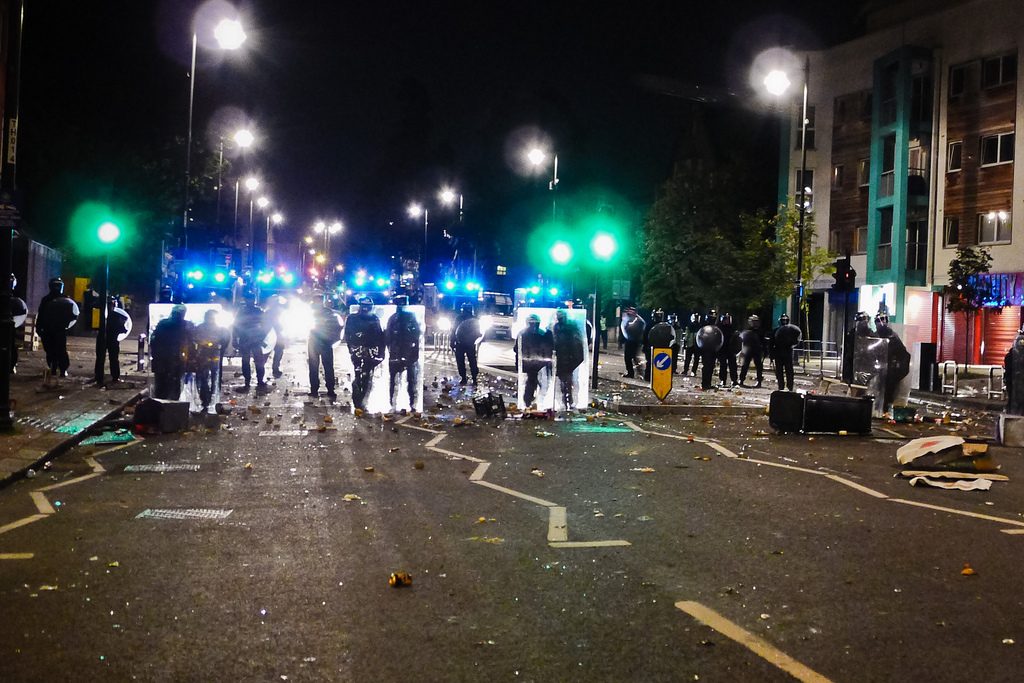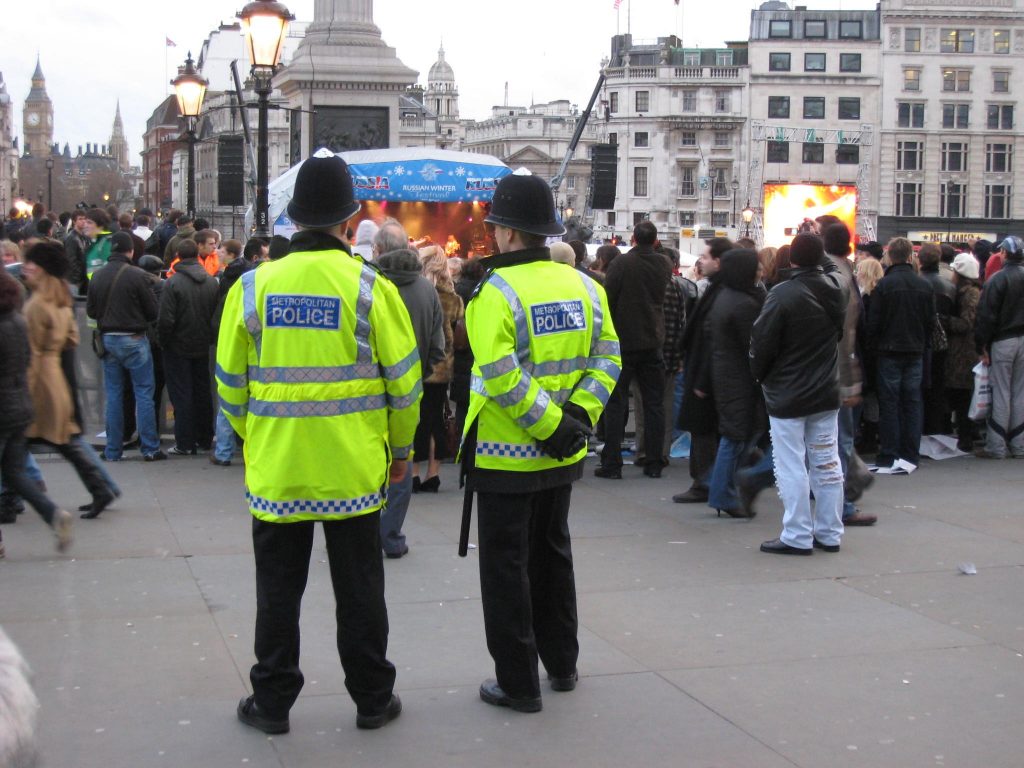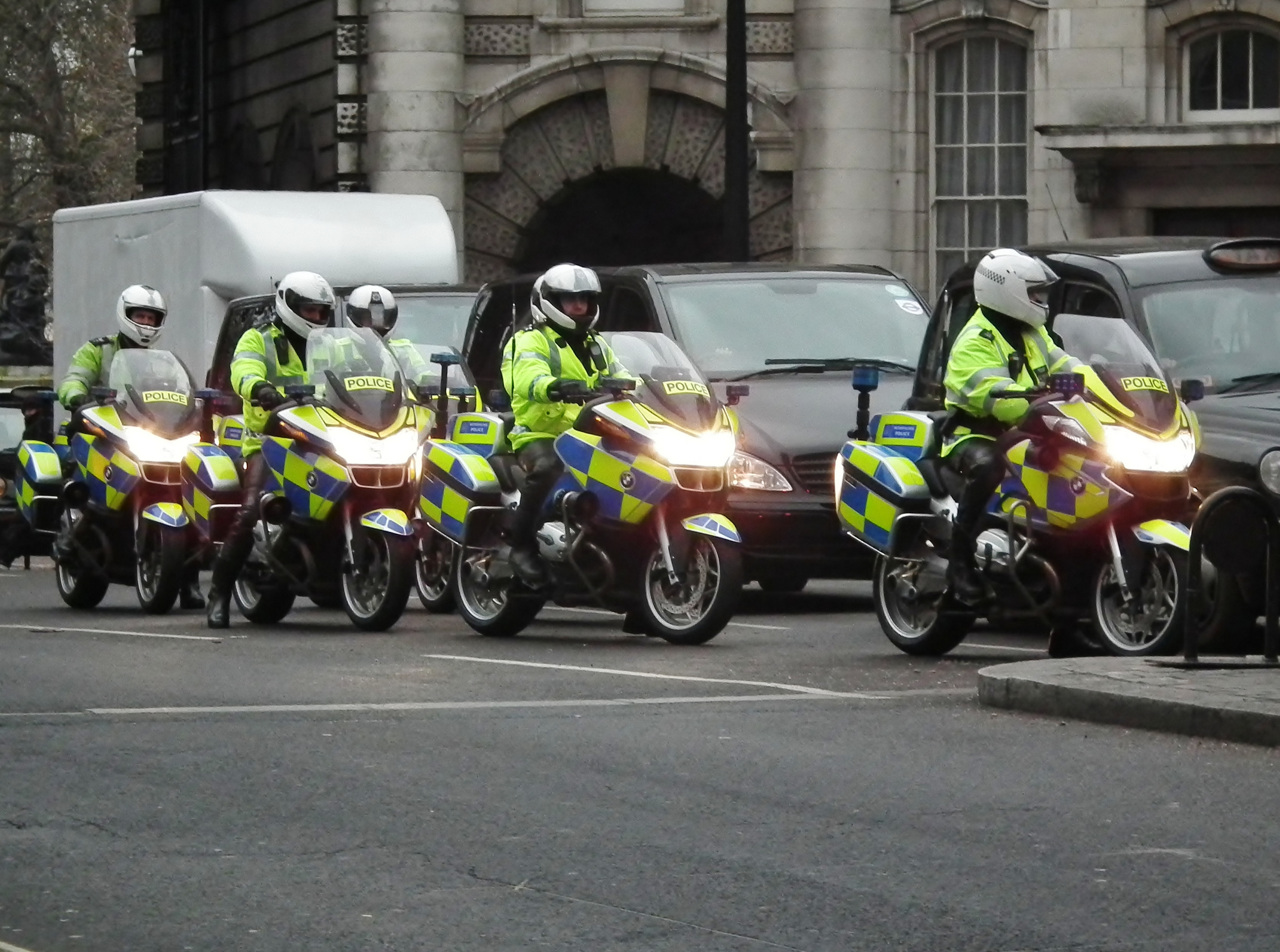A new report has found the Met Police’s gang database to be ‘racially discriminatory’ and against human rights laws.
The database system, which was launched in 2012 in response to the London riots the previous year, has been slammed as ‘unfit for purpose’ and ‘likely detrimental’.
Amnesty International, the group behind the report, are now calling on London Mayor Sadiq Khan to either bring the system in line with human rights or scrap it all together.
How Does It Even Work?

The 2011 London Riots. Image Credit: Nico Hogg / Flickr
The Gangs Matrix currently lists 3,806 people, using a ‘traffic light’ violence rating system – each listed individual is either red, amber, or green. However, about 40 percent of those listed have a ‘harm score’ of zero.
While this number includes people currently in custody (and who are therefore unable to commit any further crimes), critics say this will have a negative impact on a variety of future prospects for those who are unfairly included.
Likely to push people further into the criminal justice system than away from it
Amnesty International UK
For example, Amnesty say they have evidence data has been shared with job centres, housing associations and schools, stigmatising potentially innocent young individuals as ‘gang nominal’. They say the damage caused is more likely to push people ‘further into the criminal justice system’ than away from it.
More than three-quarters of people on the list are also black, despite police records showing this demographic is responsible for just 27 percent of youth crime in the city.
What Has the Response Been?
 Image Credit: Ronald Wong / Wikimedia
Image Credit: Ronald Wong / Wikimedia
For their part, the police have defended the database, claiming it will “prevent young lives being lost”.
However, the Information Commissioner has since confirmed it’s in been touch with the force to investigate the ins and outs of the database.
The system prevents young lives being lost
Metropolitan Police
Violence and knife crime is undeniably a huge issue for the capital though, with 50 deaths so far this year – including three at the weekend – with the murder rate said to be heading to a 13-year high.
Amnesty said: “Violence and knife crime are receiving a lot of public attention at the moment – and it is clearly a problem that needs to be tackled before more lives are lost.
“But a discriminatory, and harmful database that violates the rights of young, black men is not the way to go about it”.
And What’s The Human Rights Aspect Here?
There are some huge human rights issues surrounding the matrix, with Amnesty claiming the Met are “interfering with young people’s privacy rights”, and that inclusion can make it “difficult to access housing, education and employment”.
Under Article 8 of the Human Rights Convention, we all have a right to privacy. This protects us from interference by the state, and allows us to live autonomous lives free from arbitrary control from the state.
This isn’t an absolute right, and can be circumvented ‘in the interests of national security’ or public safety, so some would argue that given the rise in violent crime incidence in the capital, the police’s argument the database is preventing ‘young lives being lost’ justifies this derogation.
What does freedom from discrimination mean? 🤔 #YourRightsExplained pic.twitter.com/fBtyR6D2GM
— RightsInfo (@rights_info) May 4, 2018
However, it’s less clear-cut on discrimination. Under Article 14 of the Human Rights Convention we have a right not to be discriminated against, and to enjoy all rights and freedoms regardless of characteristics including race, gender and religion.
The database disproportionately includes young black men, in a climate where ‘racial bias’ in the justice system is already being debated heatedly across multiple issues – including the ‘hostile environment’ immigration policy and arrest rates among young people.






